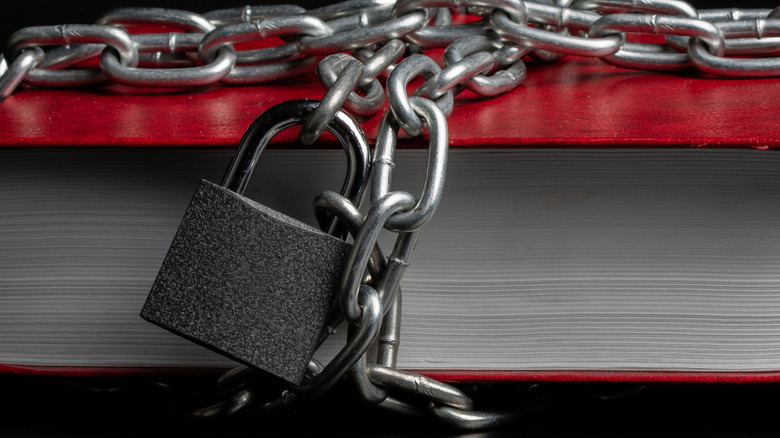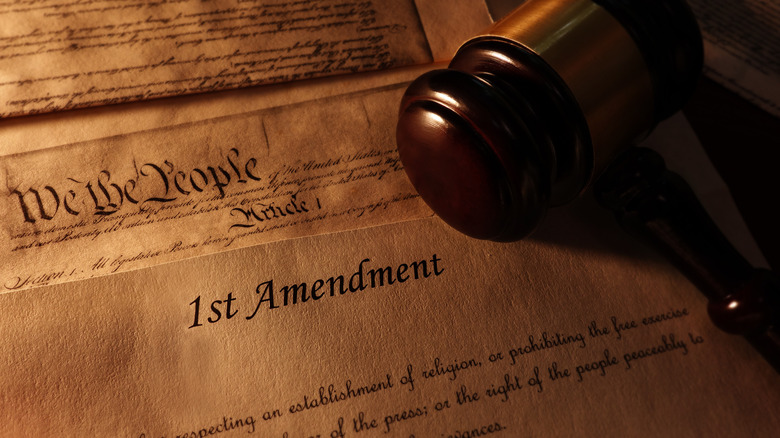What Happens When A Book Is Banned?
According to Middle Tennessee State University's First Amendment Encyclopedia, when it comes to censorship in the United States, the most commonly seen form is book banning. The catalyst for an attempt to ban a book can come from anywhere, whether it's private citizens, organizations, or government officials, and its legality when it comes to the First Amendment of the United States Constitution has been debated for decades.
Pushes to ban books seem to come in waves, and the early months of 2022 saw a fresh slate of books on the chopping block. A 2021 report from the American Library Association reported that 50% of challenges were initiated by parents. These challenges usually stem from some kind of objection to material in the book. In the 1970s, obscenity and explicit sexuality commonly drew the ire of those looking to ban books, while more recent works that contain LQBTQIA+, racial, and political material have been under fire.
The constitutionality of banning books
Whether or not banning books runs afoul of the First Amendment is the biggest sticking point when it comes to banning books. According to First Amendment Encyclopedia, while censorship does violate the First Amendment, there is some wiggle room when it comes to community standards.
Court battles over the years have given public officials the ability to ban a book if it is found to contain obscene or explicitly pornographic material that "appeals to the prurient interest; depicts or describes, in a patently offensive way, sexual conduct specifically defined by the applicable state law; and lacks serious literary, artistic, political or scientific value" when being evaluated by an average person.
This means that books written by authors who have been generally accepted by the public cannot have their work censored if the goal is to placate a small group who take issue with the material. Other agreements claim that banning books violates not just the First Amendment rights of authors but also those of readers.
The immediate effect of book banning
Well, if a ban is successful, then obviously, it's removed from shelves. However, most bans over the years have been limited to school or community libraries, and in many cases, even backfire. Books that are the subject of bans sometimes shoot up sales charts and gain higher notoriety, thus spreading the material that pro-banners wanted to suppress in the first place (via USA Today). This is all thanks to the media attention these books typically receive and support from those who oppose such bans.
Organized support for these books comes in the form of Banned Books Week, which is backed by groups like the American Library Association, American Booksellers Association, and the American Association of Journalists and Authors (via First Amendment Encyclopedia). The goal of Banned Books Week — which started in 1981 — is to make the general public more aware of books facing challenges and attempted bans based on their material.
Lots of books have been challenged or faced bans over the years. These range from "The Adventures of Huckleberry Finn" by Mark Twain and "I Know Why The Caged Bird Sings" by Maya Angelou to the Bible and even "The American Heritage Dictionary."


